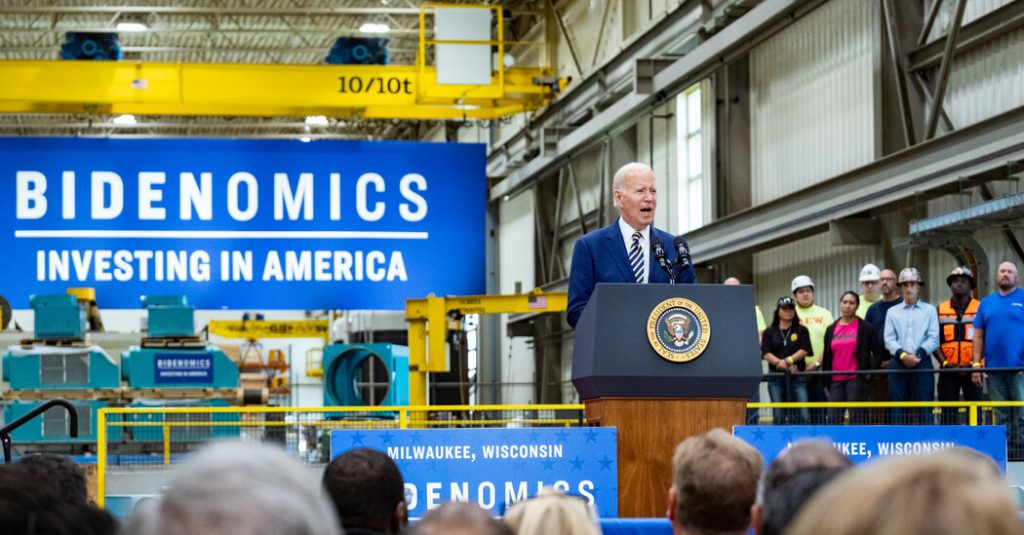Syd Ortiz, a resident of Bethlehem, Pennsylvania, believes that the economy is heading towards another Great Depression. Despite having a job she enjoys and saving up to buy a house, Ortiz feels that recent layoffs at work and high housing prices have contributed to her negative perception of the economy. After paying more attention to politics, Ortiz, a former Obama voter, is now leaning towards supporting former President Donald Trump because she saw her job improve during his administration. Pollsters and economists suggest that voter’s perceptions of the economy in late May and June could play a crucial role in shaping their decisions in the upcoming presidential election.
In a visit to Northampton County, Pennsylvania, a region Biden narrowly won in the 2020 election, interviewer found a sense of frustration and ambivalence among voters regarding the economy. Despite strong wage growth in recent years, many voters, including Ortiz, still feel gloomy about the economy. With nearly 30 percent of voters in battleground states citing the economy, inflation, or cost of living as the most important issue shaping their vote, experts suggest that voters consider the economic trajectory over months, rather than just the snapshot on Election Day.
Contrasting opinions in the community highlight the complexity of voter decision-making. Some residents, like Rhonda Albus and Anthony Thomas, expressed concerns about their stagnant incomes and rising prices, while others, like Bob Brindisi, felt that the economy wasn’t as bad as perceived. The high consumer spending, a sign of confidence, is at odds with the declining consumer sentiment. Rising inflation post-pandemic has people feeling like they are running in place economically despite strong job growth and low unemployment rates.
Economic indicators like job market data and inflation are playing a significant role in shaping voter sentiment towards the economy. The comparison of current economic conditions with the recent past contributes to the general feeling of disappointment among voters, as they remember better times before the pandemic. While wages are rising and people are getting closer to breaking even with inflation, the hope is that the economy will eventually grow into the inflation as wages continue to rise. This mixed sentiment amongst voters could have implications for the upcoming presidential election, particularly for President Biden, whose administration is being closely scrutinized for its economic impact.


